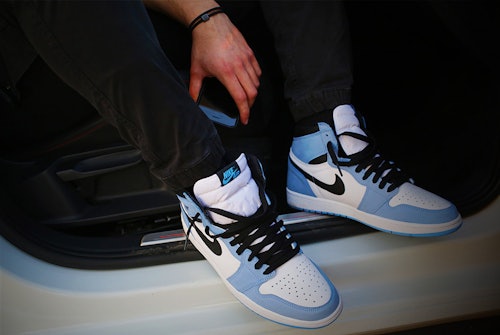- Common Insurance Coverage Requirements for Leased Vehicles
- Insurance Requirements by Leasing Company
- Gap Insurance for Leased Vehicles
- Why Leased Cars Have Extra Auto Insurance Requirements
- Frequently Asked Questions
Depending on your leasing company, you may have specific car insurance requirements (including mandatory comprehensive and collision coverage) that differ from your state-mandated minimums. With all the documents you need to sign when you lease a car, it's easy to miss or forget about these insurance minimums, so we've outlined the basics here.
Common Insurance Coverage Requirements for Leased Vehicles
Whether you buy a used or new car or lease your vehicle, you must have state-mandated minimum auto insurance coverage. If you don't, you could risk being fined, you could have your license suspended, and the state could impound your car.
Most states have minimum coverage requirements, mainly for bodily injury liability and property damage liability. New Hampshire and Virginia are currently the only two states that do not have state minimums.
Before you're allowed to drive the car off the lot, you must show proof of your insurance. If you don't have auto insurance yet, you'll need to send proof of insurance to the financing company.
State minimum coverage typically includes:
- Bodily injury liability coverage:
- $15,000 - $50,000 per person
- $30,000 - $100,000 per accident
- Property damage liability insurance:
- $5,000 - $25,000 per accident
If your leasing company doesn't have its own requirements, you'll only need to meet state minimums. However, some lessors require higher liability limits plus additional coverage.
Is Insurance for Leased Cars More Expensive?
Insurance companies don't increase your premiums just because you have a leased car. Insurance may cost more when you're leasing because you're usually required to have a policy with higher minimums as well as comprehensive and collision coverage. If you were to carry the same policy with the same vehicle but without the lease, you should be paying the same amount.
Insurance Requirements by Leasing Company
Here are some additional car insurance requirements for some major leasing companies in the U.S. Always read your contract closely as minimum requirements may vary.
| Leasing Company | Bodily Injury Liability | Property Damage Liability | Other |
| Chrysler Capital | State minimum | State minimum | Collision, fire, theft, and comprehensive |
| GM Financial | - $100,000 per person - $300,000 per accident |
- $50,000 per person - $500,000 per accident |
Collision, fire, theft, and comprehensive (max. deductible of $1,000 for each). |
| Honda Lease Trust | - $100,000 per person - $300,000 per accident |
- $50,000 per accident | (A combined limit of $300k for both bodily injury and property damage is acceptable.) Physical damage covering the loss or damage to the vehicle (max. deductible of $1,000). |
| Hyundai Lease Titling Trust Additional minimums for CT, NY, NJ, RI only |
- $100,000 per person - $300,000 per accident |
- $50,000 per accident | (A combined limit of $300k for both bodily injury and property damage is acceptable.) Collision, fire, theft, and comprehensive (max. deductible of $1,000 each). |
| Infiniti Finance | - $100,000 per person - $300,000 per accident |
- $50,000 per accident | Collision and comprehensive coverage (max. deductible $1,000 each). |
| Nissan-Infiniti LT | - $100,000 per person - $300,000 per accident |
- $50,000 per accident | Collision and comprehensive coverage (max. deductible $1,000 each). |
| Subaru Motors Finance | - $100,000 per person - $200,000 per accident |
- $50,000 per accident | Collision and comprehensive coverage (max. deductible $500 each). |
| Tesla Lease Trust | - $100,000 per person - $300,000 per accident |
- $50,000 per accident | Physical damage for the vehicle's full value (max. deductible $2,500). |
| Toyota Financial Services | State minimum | State minimum | Physical damage for the vehicle's full value (max. deductible $1,000). |
The leasing company will be listed as the lienholder of the vehicle, and you'll need to list it as the loss payee and additional insured on your insurance policy.
Gap Insurance for Leased Vehicles
Leasing a car may come with gap insurance at no additional cost, depending on your leasing company. You should definitely ask the dealership about this, as gap insurance comes in handy with a brand new vehicle.
If your lease doesn't automatically come with gap insurance, talk to your car insurance company about adding it to your policy. The finance manager at the dealership will likely ask you if you want to purchase gap insurance. However, you might find that adding it to your existing auto insurance policy is much cheaper.
What is Gap Insurance?
Guaranteed asset protection (GAP) insurance helps pay for your vehicle in the event of a total loss that occurs early on. When you buy a new car, the value depreciates quickly within the first couple of years, which means what you owe on the vehicle is much more than the car is worth.
Gap insurance covers the gap between what your insurance company will cover and what you still owe the leasing company.
Why Leased Cars Have Extra Auto Insurance Requirements
It's common to be required to carry comprehensive and collision coverage as well as higher liability limits with leased vehicles because leasing companies are technically the owners. They are protecting their financial interest in the car and want to account for your inability to pay in case of an accident, theft, etc.
The cost of your auto insurance policy will also vary depending on other factors such as your age, driving history, type of car you drive, and more.











Comments